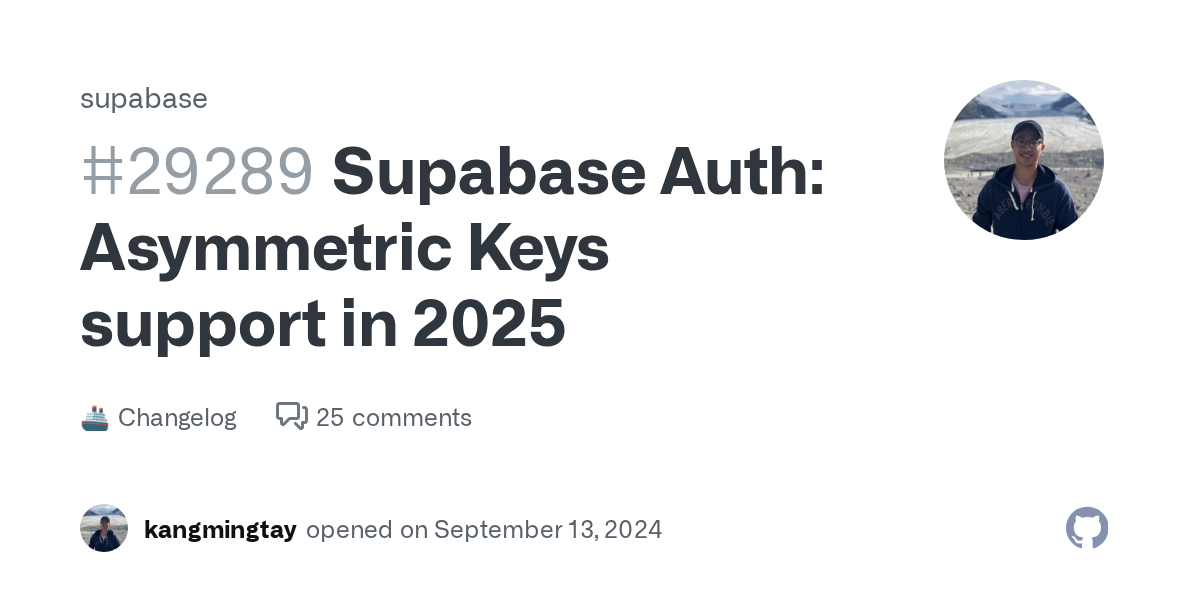Supabase Asymmetrical Key Update
Hey team, with Supabase migrating to using asymmetrical keys (https://github.com/orgs/supabase/discussions/29289), and Kinde not being a supported third party auth provider, wondering if you have any suggestions on handling auth now?
I've switched Kinde accounts, therefore need to set up a new custom JWT secret in Supabase but had accidentally migrated to the new keys. Although it is possible to resolve this by creating a new Supabase project, I would prefer not to, just wondering if the team has considered this yet. Would love to avoid having to make an extra network hop to exchange tokens for each auth.
Thanks
I've switched Kinde accounts, therefore need to set up a new custom JWT secret in Supabase but had accidentally migrated to the new keys. Although it is possible to resolve this by creating a new Supabase project, I would prefer not to, just wondering if the team has considered this yet. Would love to avoid having to make an extra network hop to exchange tokens for each auth.
Thanks
GitHub
This is now live! Read the blog post. Introduction We are introducing asymmetric key cryptography to Supabase Auth in Q4 2024 on 7th October 2024. This will be provided as an additional option to t...
